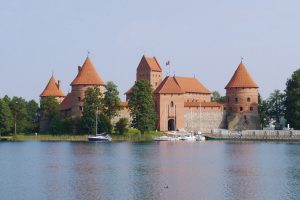German regulator wants ISPs to voluntarily block unlicensed gambling sites

The new regulator GGL has proposed a voluntary system under which ISPs could block operators without waiting for a formal order.
Germany.- The new federal gambling regulator Glücksspielbehörde (GGL) has proposed a voluntary system under which it would ask internet service providers (ISPs) to voluntarily block unlicensed gambling websites. The proposal comes after the GGL took its first enforcement action last week by ordering IP blocks against Lottoland.
The GGL is due to officially begin its full capacity as Germany’s new federal gambling regulator from January 1, but it began its enforcement action against unlicensed gambling this month. It revealed that IP blocking would be one of the tools in its arsenal and has already ordered blocks against Lottoland’s www.lottoland.com, www.lottohelden.de and www.lottohelden.com.
The GGL has the power to impose penalties against internet providers who do not comply with its IP blocking orders. However, it’s now proposed that ISPs voluntarily block unlicensed sites without waiting for a formal order subjecting them to a legal obligation.
It’s sent a letter to all ISPs that operate in Germany in which it says that they could help protect consumers by preventing illegal sites from offering gambling before being subject to an order.
The regulator said “The GGL is pursuing a cooperative approach with discussions at eye level. This does not mean that a provider should carry out blocking ‘on demand’, but rather the GGL will explain the legal basis from which the ISP’s obligation arises, as well as the previous action taken against the illegal gambling provider.
“ISPs are of course free to reject the request and only act within the framework of a formal administrative procedure. This administrative act can be subject to judicial review.”
The regulator noted that if an ISP fails to comply with a formal blocking order, it can impose a fine of up to €500,000. The GGL insists that while IP blocking encroaches on users’ and providers’ rights, they do not breach any European regulations.
It said: “The GGL’s social mission is to combat illegal gambling in order to protect gamblers and minors from gambling and betting addiction and game manipulation. In this context, according to our examination, these interventions are justified and therefore permissible. They meet the proportionality requirements.
“We have taken into account the relevant European regulations, in particular freedom of service and freedom of establishment and the requirements for network neutrality. Here, we also come to the conclusion that these are not violated by blocking the illegal offers.”
Based in the German state of Saxony-Anhalt, the GGL was created under the federal treaty on gambling, which established a federal regulated online gambling market last July. It was not due to be fully up and running until January 1, although it launched the GGL website in February.
The regulator has named Nadja Wierzejewski, head of gaming supervision in the state of Rheinland-Pfalz since 2008, as the head of the department responsible for tackling illegal gambling and its promotion.
She will be responsible for Germany’s national gaming supervision system, LUGAS. The system will compile data on players’ gambling across all licensed operators so as to make it possible to enforce a deposit cap across all operators that a player gambles with.
For now, Saxony-Anhalt’s State Administration Office remains the interim licensing authority. To date, it has announced the approval of twelve online slot and poker licences.











